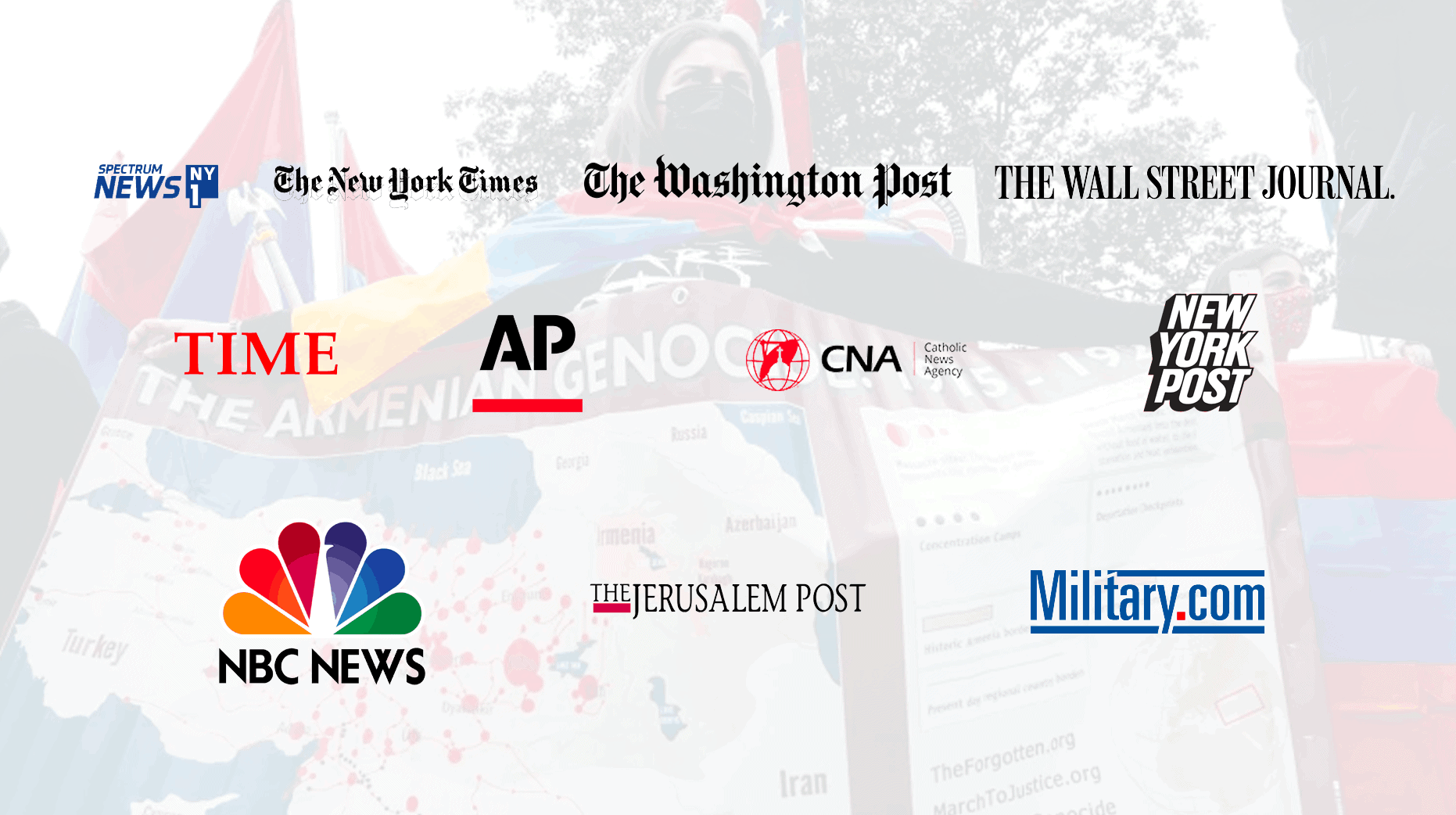APRIL 24 COMMEMORATION IN THE NEWS

The commemoration of the Genocide on April 24 received ample coverage in the U.S. media, including New York news outlets. In a story that features a video report too, NY1 said that for Armenian Americans “it was a somber milestone: on the 106th anniversary of the Armenian Genocide, President Joe Biden became the first U.S. president to formally acknowledge the genocide.”
Archbishop Anoushavan, mentioned in the same story, says that the presidential statement will bring a measure of closure to a very painful wound.
“We hope that in this case genocide acknowledgement will bring us a kind of relief and will task our world leaders, that they are taking care of preventing future genocide, which is the most important thing,” said Archbishop Anoushavan. “We are not only improving our own cause, but for all those who might be future victims of the same kind of atrocities.”
The article also quotes Nazareth Markarian, chairman of the Armenian National Committee of New York, saying that recognition by President Biden was “the culmination of years and years of activism that has brought us to this point.”
You may see the report here.
Prior to the commemoration, the U.S. Bishops’ Conference issued a statement to mark the Armenian Genocide Remembrance Day, reported the Catholic News Agency. “This horrific tragedy was intended to eliminate the Armenian people and their culture in what has been called the ‘first genocide of the 20th century,’” said the statement, signed by Bishop David Malloy of Rockford, chair of the USCCB’s international justice and peace committee.
The CNA, among other media outlets, also referred to the Armenian Bishops’ letter addressed to President Biden urging him to recognize the Genocide. “Please proclaim April 24th as a day of remembrance for the Armenian Genocide,” the Armenian clergy said in the letter, of which Archbishop Anoushavan was one of the signatories. “Non-recognition has emboldened Turkey to carry out a genocidal policy in the region.”
